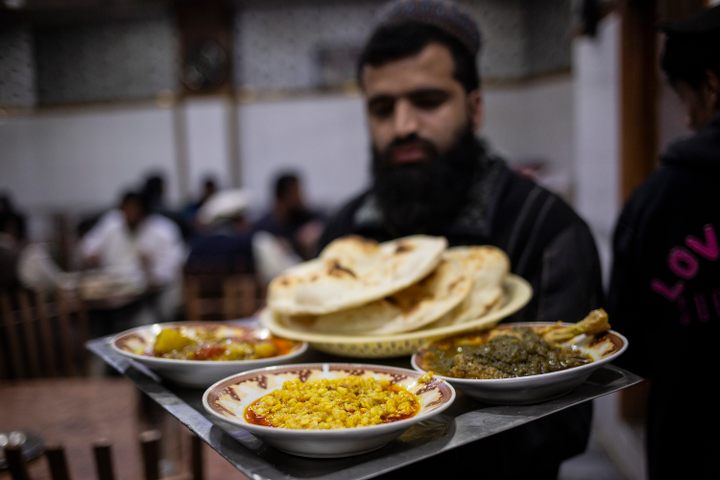

This Tiny Restaurant Helps Keep Kashmiri Cuisine Alive in Pakistan
The Dilbar Hotel has been a hub and haven for Kashmiri Muslims since 1950.
On a narrow backstreet in old Rawalpindi—Pakistan’s fourth largest city by population—is a small eatery called the Dilbar Hotel. The aging façade, which is illuminated by neon green lights in the evenings, is decorated by an awning that has been covered in a sheet of translucent plastic. There are only two phrases painted on the canvas: “Since 1948,” written in dull gray letters on one side, and the Arabic term, Mashallah, or “God has willed it,” on the other. Only if you look very closely will you see the small print identifying the restaurant.
This lack of ceremony says something about the ethos of this nearly 75-year-old establishment. Though it has been around for almost as long as Pakistan itself, the Dilbar Hotel is very much an “if you know, you know” kind of establishment—a circumstance made even more remarkable by the fact that the people who do know about it are among the most influential in the country. As you walk through the doors, the first thing you notice is a photograph on the wall from the visit of the former three-time prime minister Muhammad Nawaz Sharif, who is said to be particularly enamored with its salted tea. Other politicians who have patronized the restaurant include former prime minister Shahid Khaqan Abbasi, former interior minister Sheikh Rashid Ahmed, and virtually the entire top leadership of the parts of Kashmir under Pakistani control.
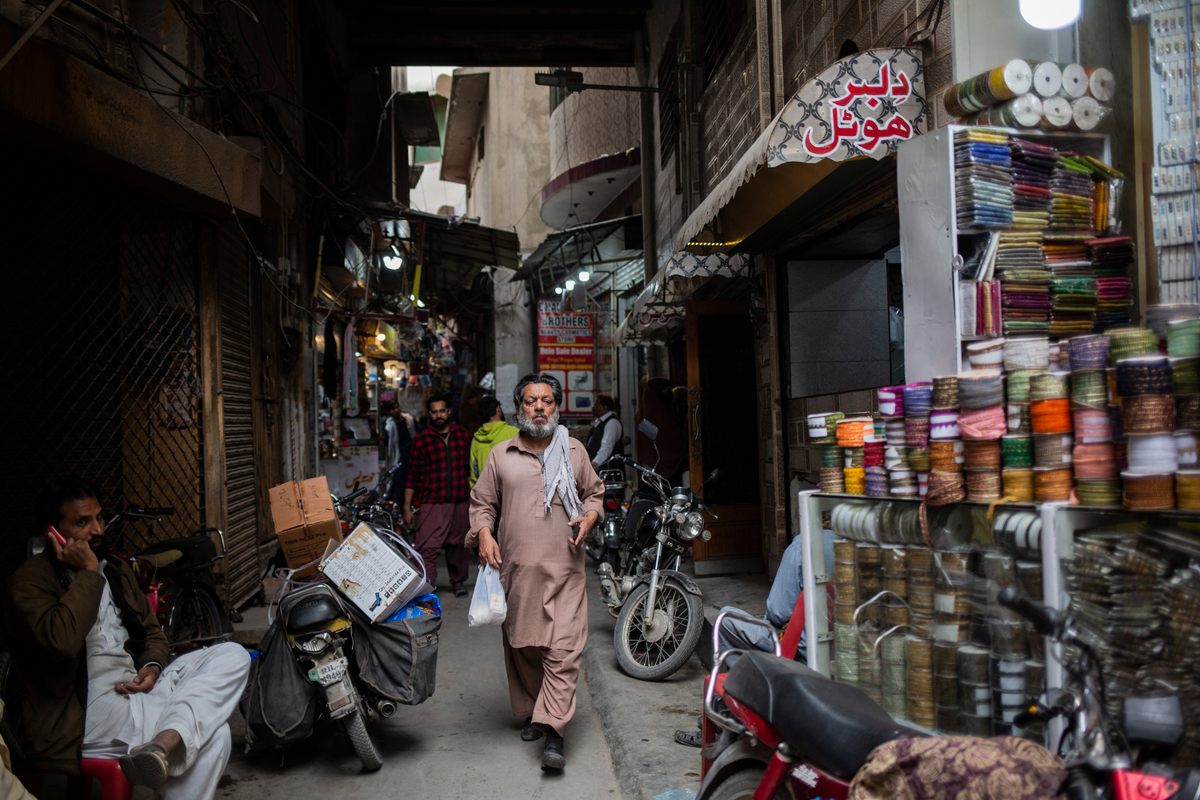
During the partition of British India in 1947, thousands of Kashmiri Muslims migrated to the newly created state of Pakistan. Among them was Malik Jamal, a retired soldier in the British Army who opened a small teashop near the Raja Bazaar, one of Rawalpindi’s main markets. It wasn’t the tea that captured the locals’ attention, however, but the hareesa (a porridge of wheat and mutton) and tabaq maz (pieces of sheep ribs cooked in turmeric) that the shopkeeper would bring from home for his own lunch and supper. They suggested that he convert the business into a fully-fledged restaurant and, in 1950, the Dilbar Hotel opened its doors.
These days, the restaurant—the words hotel and restaurant are used interchangeably in the local vernacular—is run by Jamal’s son, Malik Aslam. Since his restaurant is perhaps the only one in the country serving food from the Kashmir valley, Aslam believes that he is the custodian of a culinary tradition that must be treated like a precious heirloom. He insists on preparing most of the dishes himself and refuses to share the complete recipes even with the chefs who work for him.
On the day I visited, Aslam was hard at work in the kitchen, turning his ladle in the heavy cauldron of korma before meticulously inspecting the length of each kebab on the skewer. “Since these are recipes from our home, we are able to think about them more deeply than others,” he says with the zeal of a preacher. “We make our food the same way they did hundreds of years ago.”
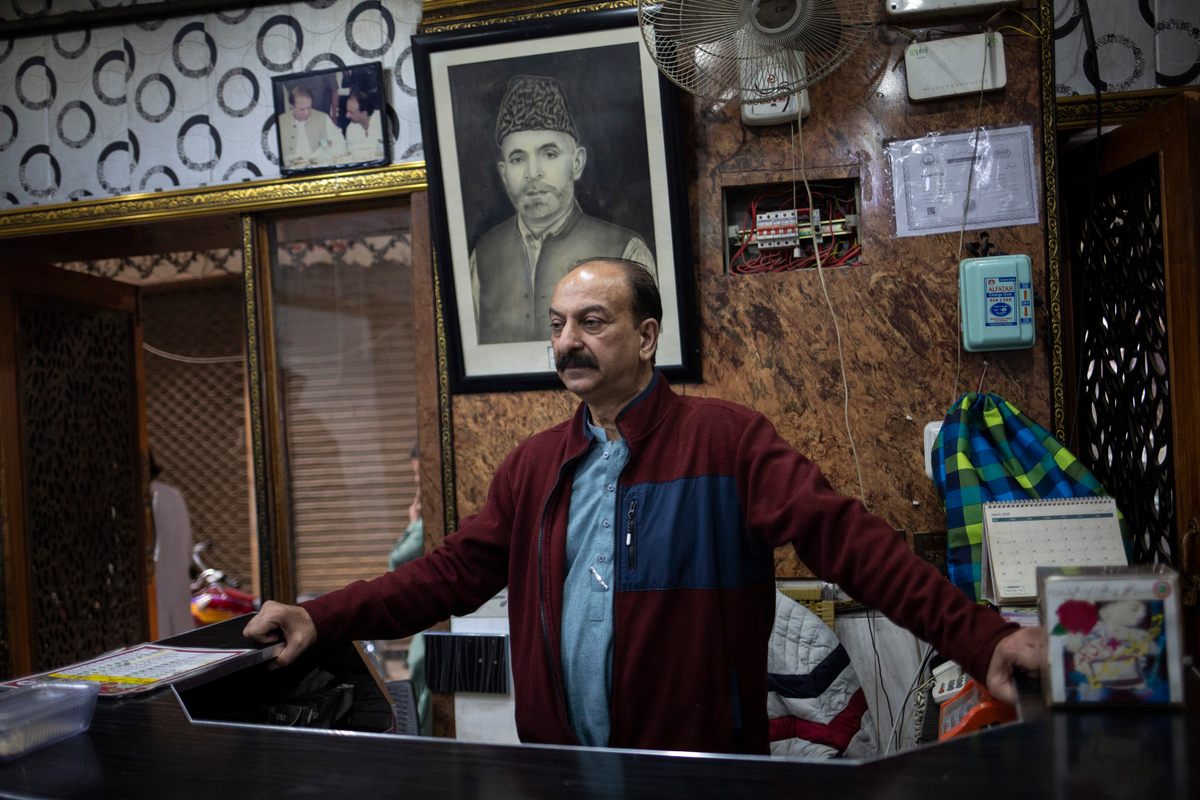
This means that he is unwilling to use any kind of electrical appliance. To prepare goshtaba, his special meatballs cooked in yogurt, he insists on pounding the mutton with dull metal hammers and then removing the veins by hand. “I’ve tried using choppers and food processors, but they leave the meat tough,” he says. “Believe me, I’ve tried all of these innovations, but the old methods are the ones that have stood the test of time.”
Cooking is how Aslam connects himself to Kashmir, especially to Kupwara, the land of his forebears. Due to ongoing conflict, Aslam has never been able to set foot on his homeland. “Of course, my heart longs to visit,” he says. “But science has at least given us a gift in the shape of video-calling. I can speak to my family-members and see their faces.”
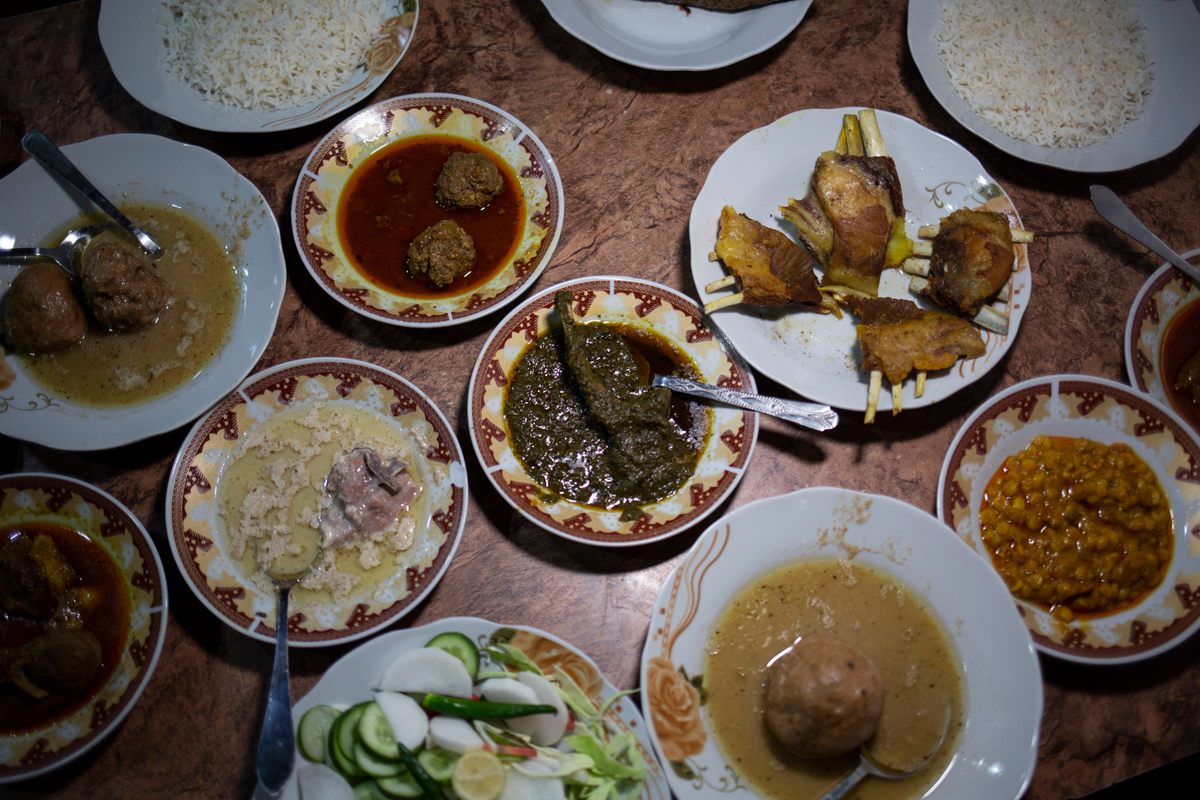
Kashmir has been a disputed territory since it was split up after the 1947 partition of India and Pakistan. The two sides have fought three wars over the region with each side blaming the other for illegally occupying the parts under their control, and it remains the subject of regular flash points between the two countries. The United Nations, which was asked to mediate in the conflict after the partition, proposed that the people of Kashmir decide whether to accede to Pakistan or India, but no such vote has been held.
For Aslam, it’s not a matter of choosing one side over the other. “I don’t say that Kashmir should belong to Pakistan or India,” he says. “We should be independent and autonomous…and that includes the parts of Kashmir that are under Pakistani control.”
But with independence little more than a pipe dream, and the chances to visit his homeland exceedingly remote, Aslam believes the greatest service he can render his culture is by preserving its culinary heritage and by making the restaurant a community hub for the Kashmiri diaspora. He is quick to point out that when Dilbar, which means “beloved” in Urdu, first opened its doors in 1950, it quickly began to attract the attention of those refugees from the Kashmir valley who had come to Pakistan after the partition.
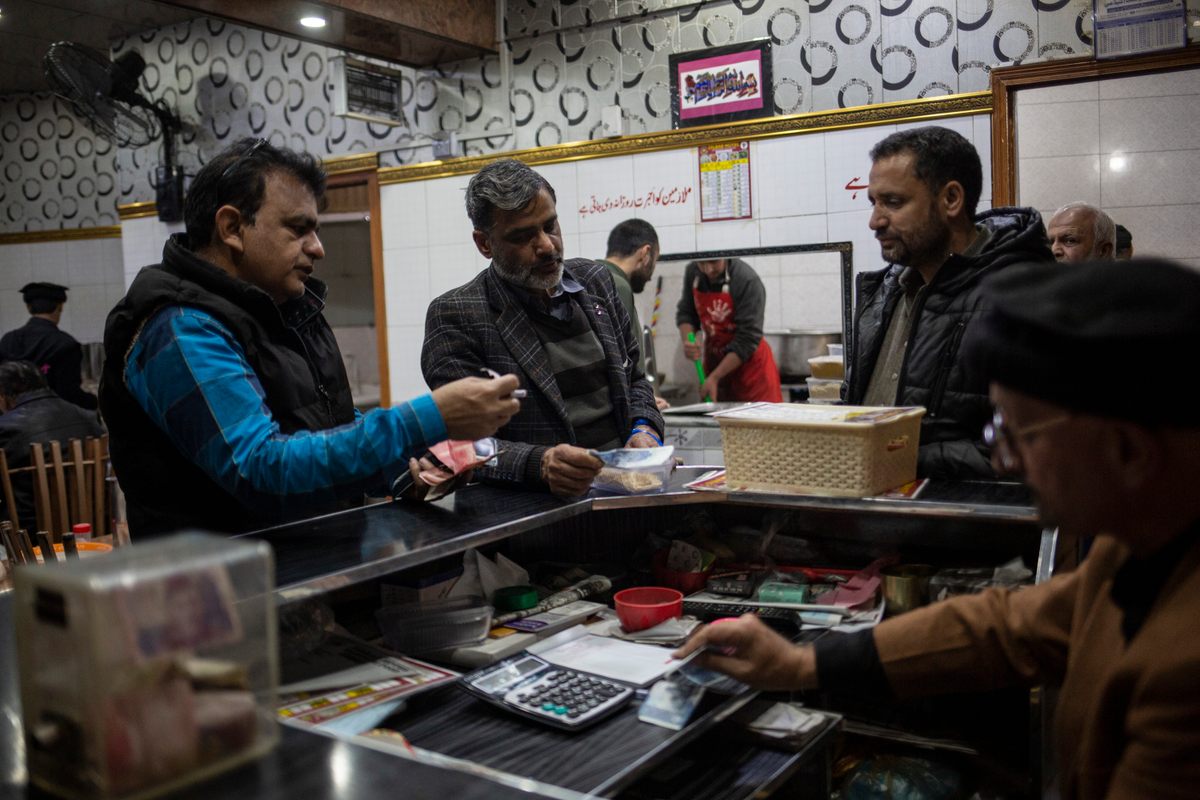
“Many of these people were destitute and of course our family didn’t have the wherewithal to offer them shelter, but we let them eat for free with the understanding that they would come back and pay once they had become more settled,” says Aslam. “I still have a bunch of old red ledgers in which my father recorded their tabs. Many of the people in these books have passed away and I sometimes find myself crossing out their names. These are matters of the world after-all; they cannot go on forever.”
For many years, Aslam says that the Dilbar Hotel also doubled as a sort of P.O. Box for Kashmiri refugees who had no fixed abode in Pakistan. “Once every three or four months, these people would come to collect their mail and it was here that they would find out where their friends and relatives had settled.”
Today, almost eight decades after it started doing business as a restaurant, the Dilbar Hotel has built a clientele of Kashmiris and non-Kashmiris alike. And for the uninitiated, restaurant specialties such as aab gosht (mutton braised in milk) and goshtaba are even more exotic than sushi and dim sum.
Zaheer Ahmad, a local businessman who has been frequenting Dilbar (as it is affectionately known to the locals) for more than 45 years, claims that it is this uniqueness that has ensured the restaurant’s longevity. “You can get a steam roast or a burger pretty much anywhere in the country,” he says. “But the items that are available here you won’t be able to find in any other restaurant in Pakistan.”
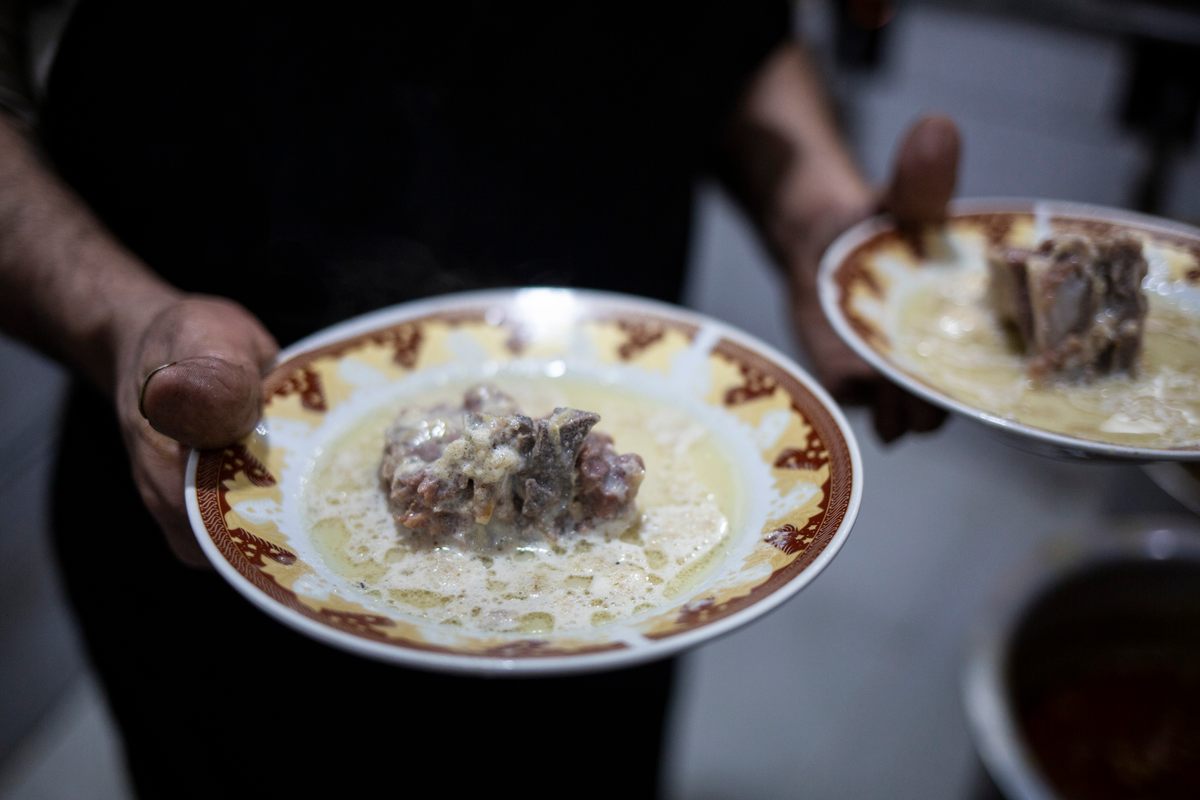
Gastro Obscura covers the world’s most wondrous food and drink.
Sign up for our regular newsletter.
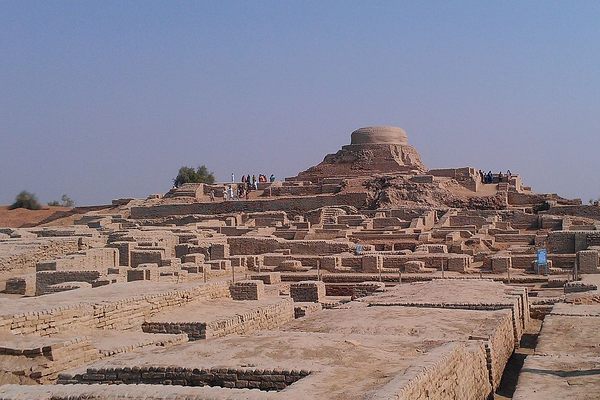

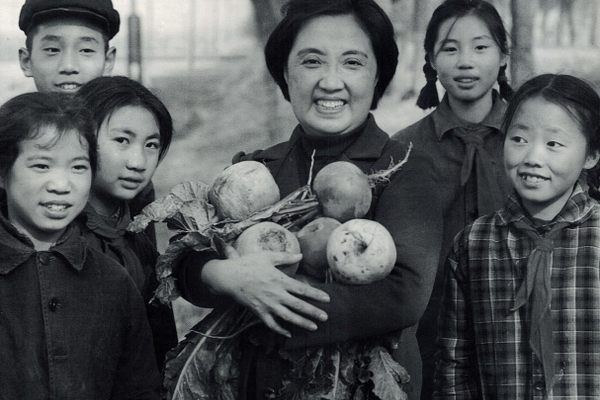
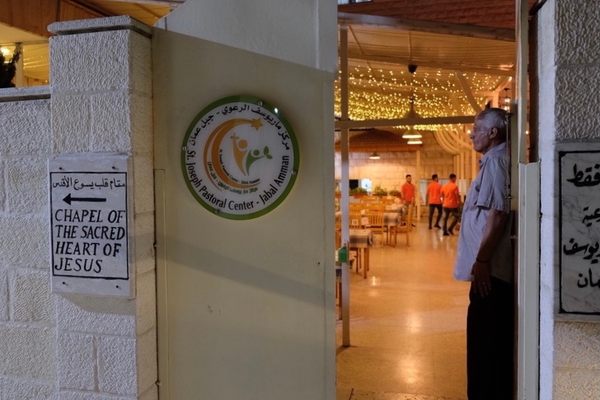
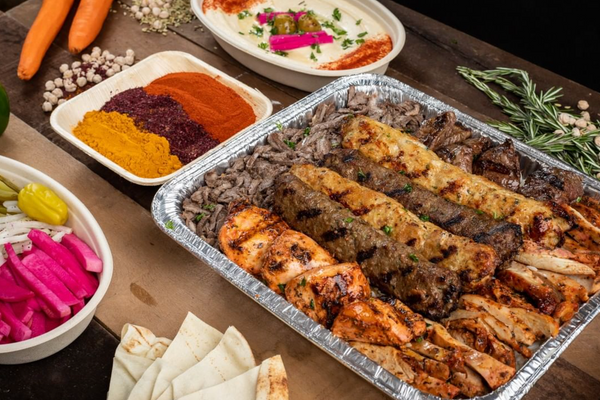
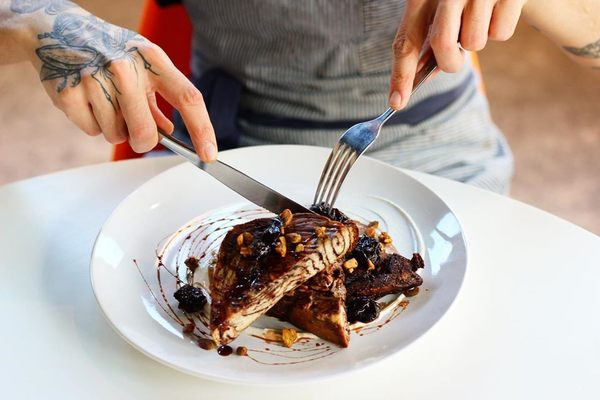
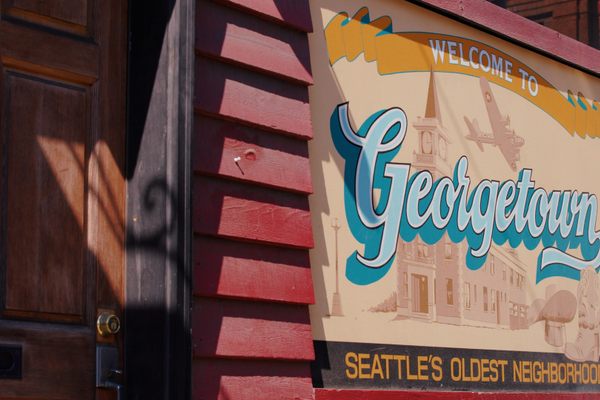
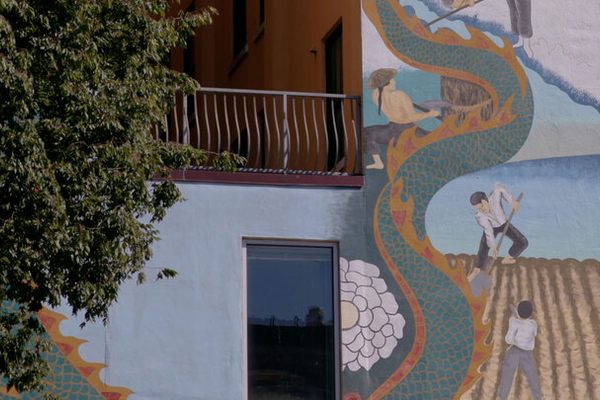









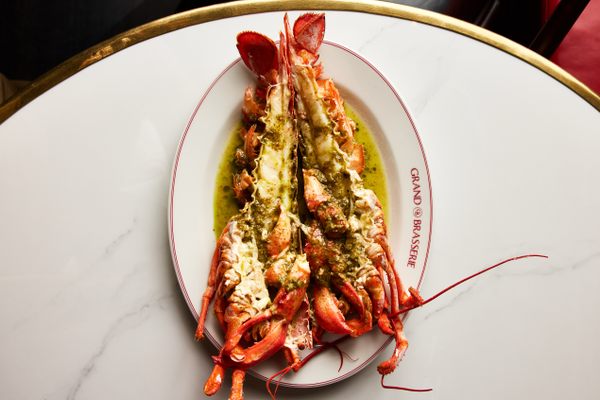


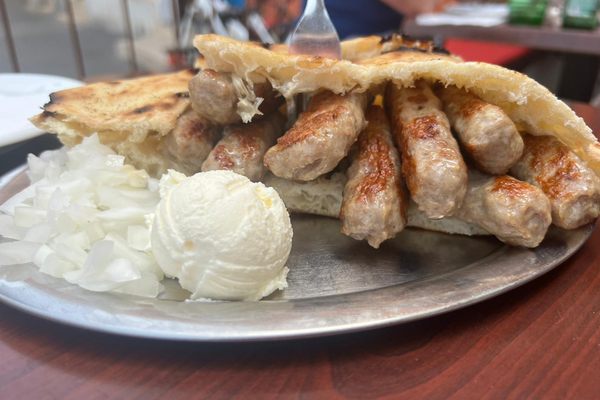



Follow us on Twitter to get the latest on the world's hidden wonders.
Like us on Facebook to get the latest on the world's hidden wonders.
Follow us on Twitter Like us on Facebook